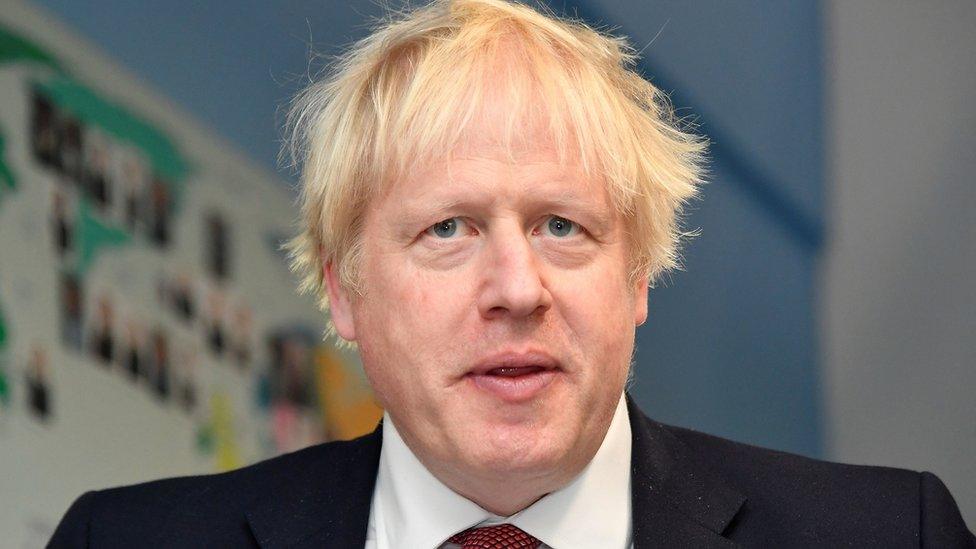Brexit: Republic will not be 'dragged out' of the single market, says taoiseach
- Published
- comments
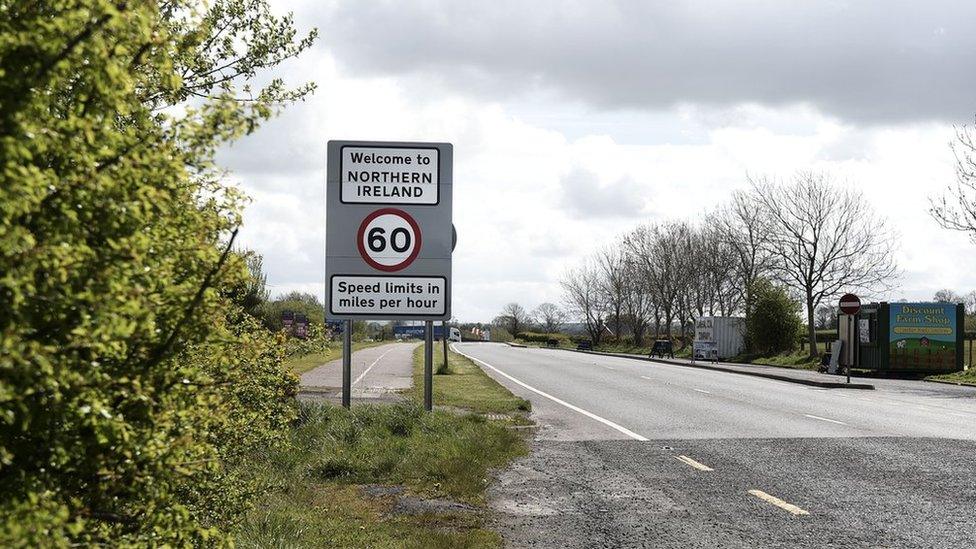
The proposals could mean customs sites created on both sides of the border
Taoiseach (Irish prime minister) Leo Varadkar has said the Republic is "not going to allow ourselves to be dragged out of the single market".
Speaking in the Dáil, he also welcomed Prime Minister Boris Johnson's rejection of a proposal for custom sites near to the border.
The taoiseach said the UK government should not "impose" customs checks "against the will of the people".
He was echoing calls made by Irish deputy prime minister Simon Coveney.
Responding to a question from People Before Profit TD Richard Boyd Barrett, Mr Varadkar said the Republic would not be left in the "worst of all worlds" but not introducing border checks in the event of a no-deal Brexit.
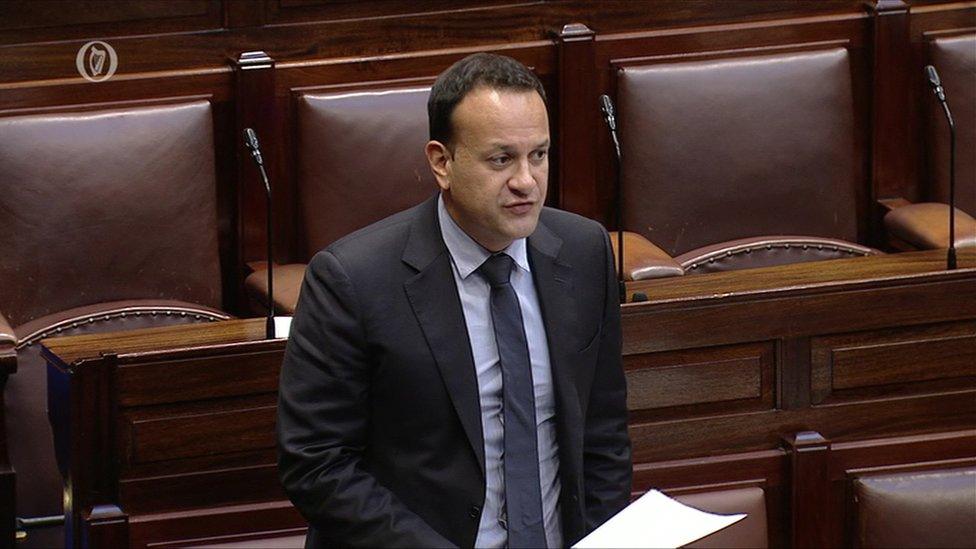
The taoiseach has said the Republic will not be "dragged out" of the single market
He said not doing so could mean Irish businesses "facing checks in Rotterdam, and in Zeebrugge, and in Calais".
"We certainly can't allow ourselves out of belligerence to end up in a situation whereby we are surrounded by a border on all sides, and that is certainly not a situation we want to be in," he said.
Confused by Brexit jargon? Reality Check unpacks the basics.
On Monday night, Irish national broadcaster RTÉ, external said the UK suggested 'customs clearance zones' on both sides of the Irish border could replace the backstop.
However, on Tuesday, Prime Minister Boris Johnson denied tabling that proposal.
But, in a separate interview, he accepted that some kind of customs checks would be necessary.
Proposals for reaching a Brexit deal had been expected ahead of a crucial EU summit on 17 October.
Limited checks
The BBC understands that any further customs inspections would be very limited.
Political correspondent Iain Watson said they could be conducted either at new locations or at existing business premises.
Would you notice if you crossed the Irish border? (Video from 2017)
The proposals would mean posts created on both sides of the border, potentially five to 10 miles back from the land frontier.
RTÉ said consignments would be checked and cleared at the sites, with data being provided to the customs authorities on both sides of the border.
Goods moving from a customs clearance site on the northern side of the border to a similar site on the southern side would be monitored in real time using GPS via mobile phone data or tracking devices placed on trucks or vans.
In the Lords on Tuesday, former Police Ombudsman Baroness Nuala O'Loan said the risk of attack on any physical infrastructure was very high.
She told the chamber dissident republicans are very active, while recent comments from the UVF indicate they could enter into violence if the situation deteriorates.
'Non-starter'
The ideas are believed to be contained in one of four so-called non-papers submitted by UK officials during recent technical discussions in Brussels.
In a tweet, Tánaiste (Ireland's deputy prime minister) Simon Coveney said the proposals were a "non-starter", adding Northern Ireland and the Republic of Ireland "deserve better".
A spokesman for the Irish government said: "The EU Task force has indicated that any non-papers it has received from the UK to date fall well short of the agreed aims and objectives of the backstop."
Reaction to 'customs clearance zones' suggestion
BBC Europe editor Katya Adler said if the customs sites plan was to become the official UK position, it would be dismissed and rejected by the EU as insufficient.
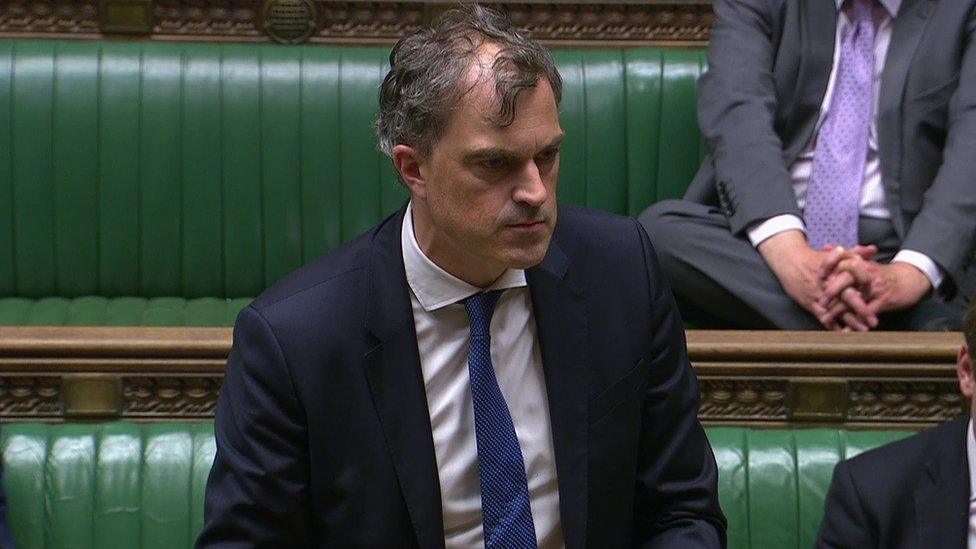
Julian Smith said customs facilities were "not possible" in many locations in Northern Ireland
However, Northern Ireland Secretary of State Julian Smith said he had not seen reports about custom clearance centres and did not know where the claims had come from.
"The border in Northern Ireland is not just the border, it's the area around the border so I'm very clear on that," Mr Smith told the BBC's Good Morning Ulster programme.
He added that the prime minister was "fully committed" to the Good Friday Agreement.
The DUP's Emma Little-Pengelly said Monday night's reports had caused "surprise and dismay" to many in Northern Ireland.
She asked the minister to engage with Northern Ireland businesses in order to make it clear that creating facilities set back from the border is not government policy as this would constitute a hard border.
Transition period
The UK is due to leave the EU on 31 October, and Mr Johnson has said this will happen whether or not there is a new deal with Brussels.
Currently, there are no border posts, physical barriers or checks on people or goods crossing the border between Northern Ireland and the Republic of Ireland.
The backstop is a measure in the withdrawal agreement, between Theresa May and the EU, which is designed to ensure that continues after the UK leaves the EU.
It comes into effect only if the deal deciding the future relationship between the UK and EU is not agreed by the end of the transition period.
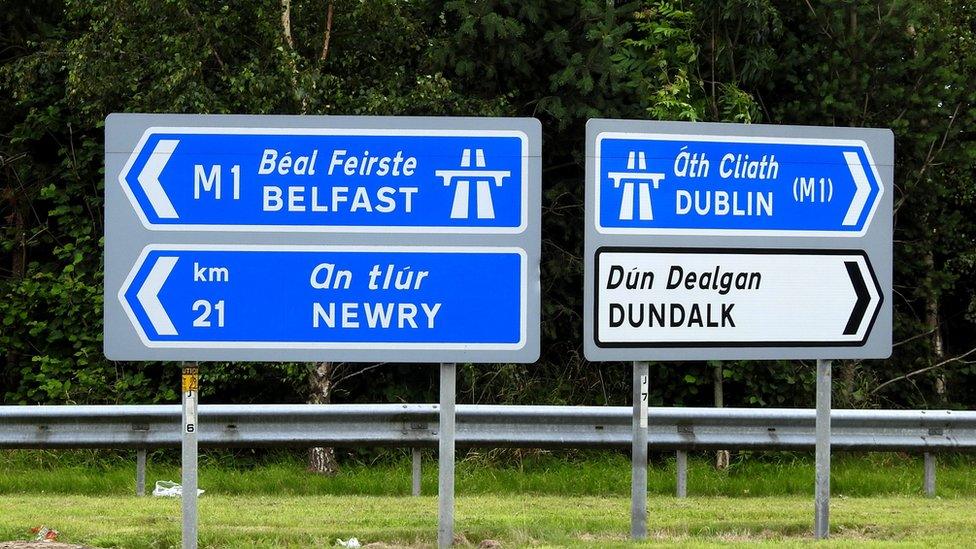
Currently, there are no border posts, physical barriers or checks on people or goods crossing the border
'Smugglers' charter'
Sinn Féin leader Mary-Lou McDonald told the BBC's Today programme the plan was "essentially the re-imposition of a hard border on Ireland".
SDLP leader Colum Eastwood said the proposals failed to meet the UK's obligations to avoid physical infrastructure.
"It doesn't matter if it's a mile, five miles or 10 miles away, the presence of physical checks will create economic and security challenges that are unacceptable," he said.
Aodhán Connolly, director of the Northern Ireland Retail Consortium, said if the proposals were true, they showed the government had not listened to business in Northern Ireland.
He also said the move "ripped up" the joint declaration of December 2017 between the EU and UK.
Allow X content?
This article contains content provided by X. We ask for your permission before anything is loaded, as they may be using cookies and other technologies. You may want to read X’s cookie policy, external and privacy policy, external before accepting. To view this content choose ‘accept and continue’.
Seamus Leheny, from the Freight Transport Association in NI, said the proposal contradicted "every single piece of feedback and advice that we in the NI business community have given to the government".
He said while it may work for ports, "unfortunately it is not suited to a land border".
"It's basically a smugglers' charter."
- Published1 October 2019

- Published13 July 2020
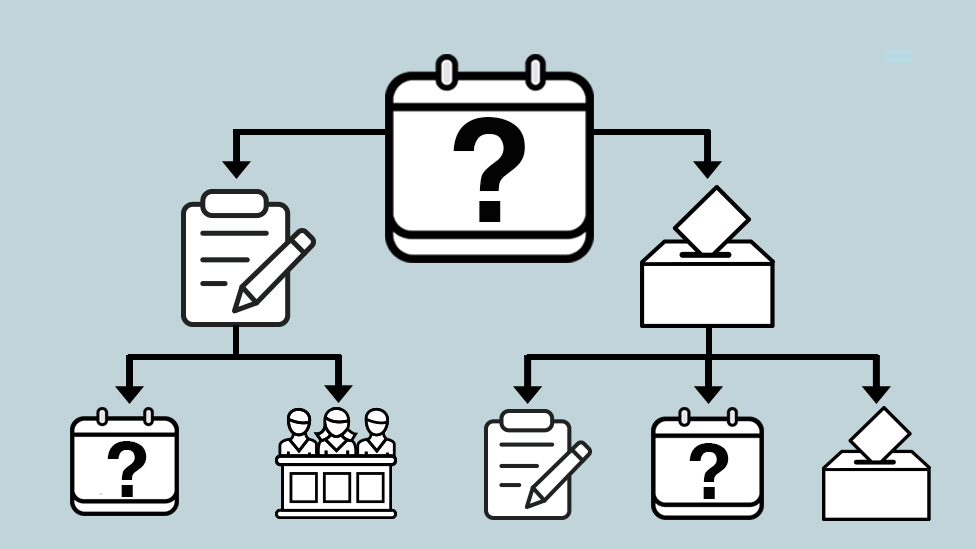
- Published16 October 2019

- Published11 September 2019
